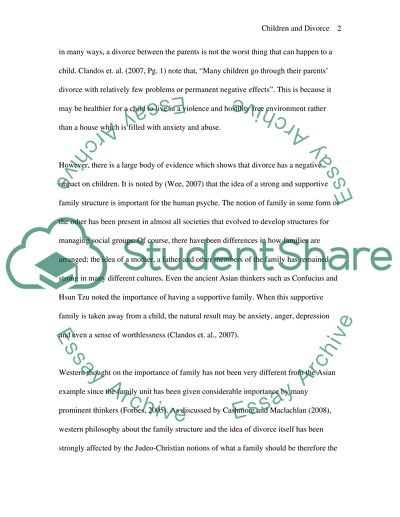Cite this document
(“Children and Divorce Essay Example | Topics and Well Written Essays - 2750 words”, n.d.)
Children and Divorce Essay Example | Topics and Well Written Essays - 2750 words. Retrieved from https://studentshare.org/psychology/1550991-topicochildren-and-divorce
Children and Divorce Essay Example | Topics and Well Written Essays - 2750 words. Retrieved from https://studentshare.org/psychology/1550991-topicochildren-and-divorce
(Children and Divorce Essay Example | Topics and Well Written Essays - 2750 Words)
Children and Divorce Essay Example | Topics and Well Written Essays - 2750 Words. https://studentshare.org/psychology/1550991-topicochildren-and-divorce.
Children and Divorce Essay Example | Topics and Well Written Essays - 2750 Words. https://studentshare.org/psychology/1550991-topicochildren-and-divorce.
“Children and Divorce Essay Example | Topics and Well Written Essays - 2750 Words”, n.d. https://studentshare.org/psychology/1550991-topicochildren-and-divorce.


